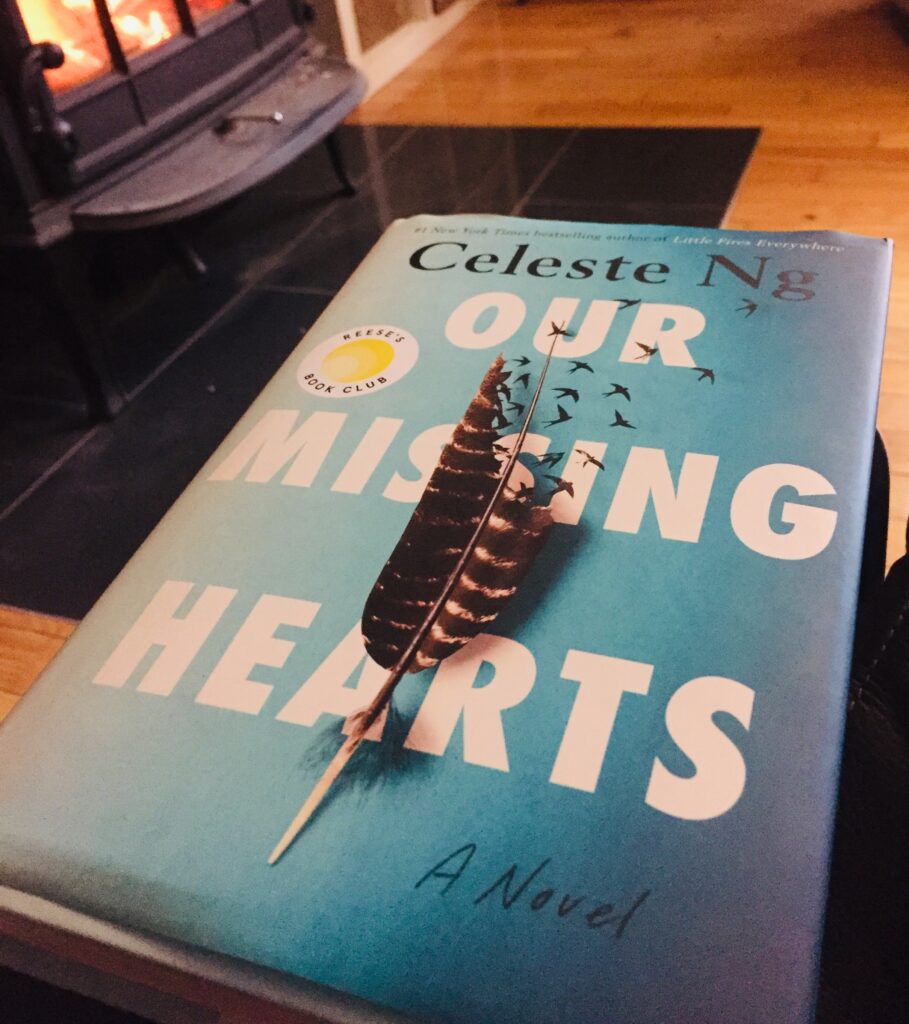
Title: Our Missing Hearts
Author: Celeste Ng
Date Read: January 12, 2023
Snapshot of the Book
Set in a dystopian near-future America, this haunting novel follows twelve-year-old Bird Gardner as he searches for his mother, a Chinese American poet who disappeared when authorities declared her work unpatriotic. In this world, the government has enacted PACT (Preserving American Culture and Traditions), legislation that monitors and punishes those deemed threats to American values.
Ng masterfully weaves together themes of censorship, identity, family separation, and the power of art to resist oppression. The story explores how fear can reshape society and how poetry and stories can become acts of rebellion. Through Bird's journey, we witness both the fragility and resilience of love in the face of authoritarian control.
Snapshot of the Book in My Classroom
This novel offers rich opportunities for literary analysis and critical thinking. Ng's craft choices provide excellent teaching moments:
- Symbolism: The recurring motif of hearts—missing, broken, hidden—creates layers of meaning throughout the text
- Narrative structure: The shift between past and present, between Bird's perspective and his mother's story, demonstrates sophisticated storytelling techniques
- Intertextuality: References to fairy tales and folklore show how stories within stories can deepen meaning
The book sparks essential discussions about censorship, propaganda, and the role of art in society. Students connect deeply with questions about what makes something "dangerous" and who gets to decide what stories can be told.
I've used passages from this book to teach about dystopian fiction as social commentary. Students analyze how Ng takes current societal tensions and extrapolates them into a believable near-future, making the unthinkable feel terrifyingly possible.
Snapshot of the Book in My Life
Reading this during a time of increasing book challenges and educational censorship made it particularly resonant. Ng's vision of libraries as sites of resistance and librarians as quiet revolutionaries felt both inspiring and urgent.
The mother-child relationship at the heart of the story moved me deeply. The idea that love can be both a vulnerability and a source of strength, that sometimes protecting those we love means staying away—these complexities felt achingly real.
The book reminded me why I became a teacher: to help young people find their voices, to show them the power of stories, and to create spaces where all perspectives can be heard and valued. In a world that sometimes feels increasingly divided, Ng's novel is a powerful reminder of our shared humanity.

